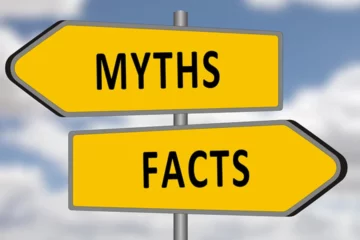The Ultimate Guide to Understanding Motor Insurance: Everything You Need to Know

Understanding Motor Insurance
Owning a vehicle is a significant investment, and it comes with several responsibilities. One of the essential responsibilities of car ownership is ensuring that you have the right motor insurance coverage. Motor insurance is a form of protection that covers you against any financial losses that may arise from accidents, theft, or damage to your vehicle. It is crucial to understand the different types of motor insurance, the factors that affect your premiums, and how to choose the right policy to make an informed decision. In this ultimate guide to understanding motor insurance, we will break down everything you need to know.
Types of motor insurance
There are two main types of motor insurance policies: third-party motor insurance and comprehensive motor insurance.
Third-party motor insurance
Third-party motor insurance is the most basic form of motor insurance and is mandatory by law. This policy covers you against any legal liability arising from accidental damage to third-party property or injury to a third party. It does not cover you against any damage to your vehicle or personal injuries.
Third-party motor insurance is ideal for those who have an older vehicle with a low market value and a limited budget. However, if you have a new or expensive car, it is advisable to go for a comprehensive motor insurance policy.
Comprehensive motor insurance
Comprehensive motor insurance is an all-inclusive policy that covers both third-party liability and damage to your vehicle. It also covers you against any personal injuries sustained from an accident.
Comprehensive motor insurance is ideal for those who have a new or expensive vehicle or those who live in areas with a high risk of car theft or damage. It is also advisable for those who frequently travel long distances or use their vehicles for commercial purposes.
Add-ons and riders for motor insurance
In addition to the standard third-party or comprehensive motor insurance policies, you can also opt for add-ons or riders to customize your policy to suit your specific needs. Some popular add-ons include:
- Personal accident cover: This add-on covers you against any personal injuries sustained from an accident.
- Zero depreciation cover: This add-on ensures that you receive the full value of your car in case of damage without any depreciation deductions.
- Roadside assistance cover: This add-on provides you with assistance in case of breakdowns, flat tires, or any other emergency situations.
- Engine protection cover: This add-on covers the cost of repairs or replacement of your vehicle’s engine in case of damage.
Factors that affect motor insurance premiums
Several factors affect the cost of your motor insurance premiums. Understanding these factors can help you make informed decisions when choosing a policy.
Age and gender
Younger drivers and male drivers are considered to be at a higher risk of accidents and tend to pay higher premiums.
Type of vehicle
The make and model of your vehicle can also affect your premiums. Expensive or high-performance vehicles have a higher risk of theft or damage and tend to attract higher premiums.
Driving history
Your driving history is also a significant factor in determining your motor insurance premiums. Drivers with a history of accidents or traffic violations tend to pay higher premiums.
Location
Your location can also affect your motor insurance premiums. If you live in an area with a high risk of car theft or accidents, your premiums may be higher.
Usage
The frequency and purpose of your vehicle usage can also affect your premiums. If you use your vehicle for commercial purposes, you may have to pay higher premiums.
How to choose the right motor insurance policy
Choosing the right motor insurance policy can be overwhelming, but considering the following factors can help you make an informed decision.
Coverage
The first consideration when choosing a policy is the coverage offered. Consider your needs and budget and choose a policy that provides adequate coverage.
Premiums
Compare premiums from different insurers to find the most affordable option. However, keep in mind that the cheapest policy may not always be the best.
Add-ons
Consider any add-ons or riders that may be relevant to your needs and add them to your policy.
Insurer’s reputation
Choose an insurer with a good reputation for customer service and claims settlement.
Making a motor insurance claim
If you are involved in an accident or your vehicle is stolen, follow these steps to make a motor insurance claim:
- Inform your insurer immediately and provide them with all the necessary details.
- File a police report and obtain a copy of the report.
- Take pictures of the damage or loss.
- Submit all the necessary documents to your insurer.
- Wait for your claim to be processed and approved.
Common motor insurance myths
There are several myths surrounding motor insurance that can mislead you. Here are some common motor insurance myths and the truth behind them.
Myth: Red cars are more expensive to insure.
Fact: The color of your car has no impact on your insurance premiums.
Myth: Comprehensive motor insurance covers everything.
Fact: While comprehensive motor insurance offers extensive coverage, it does not cover everything.
Myth: Your motor insurance premiums will decrease every year.
Fact: Your premiums may increase or decrease depending on several factors such as your driving history, location, and age.
Frequently asked questions about motor insurance
Here are some frequently asked questions about motor insurance:
Q: Is motor insurance mandatory by law?
A: Yes, third-party motor insurance is mandatory by law.
Q: Can I transfer my motor insurance policy to another vehicle?
A: Yes, you can transfer your policy to another vehicle by informing your insurer.
Q: Can I claim for damages to my vehicle if I am at fault in an accident?
A: No, you cannot claim under your own policy if you are at fault in an accident.
Conclusion
Understanding motor insurance is essential for every vehicle owner. By knowing the different types of motor insurance, the factors that affect your premiums, and how to choose the right policy, you can make informed decisions that protect your investment. Remember to compare premiums, add relevant add-ons to your policy, and choose an insurer with a good reputation for customer service and claims settlement.










